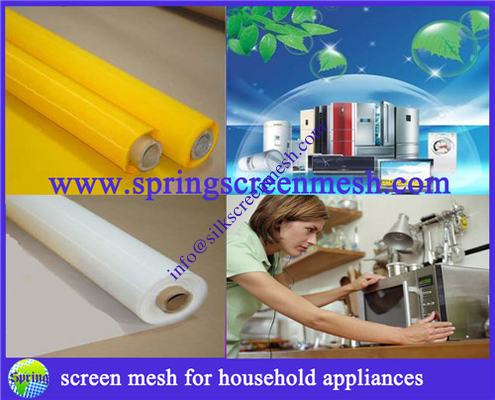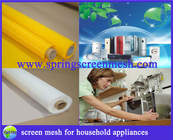Home Appliances Glass Printing Mesh Material
| Place of Origin | Shanghai China |
|---|---|
| Brand Name | SPRING |
| Certification | ISO9001 |
| Model Number | DPP |
| Minimum Order Quantity | 30m |
| Price | 1-50$/m |
| Packaging Details | Paper tube, plastic bag, carton box, sailcloth or according to the customer's special requests |
| Delivery Time | 3-5 Days |
| Payment Terms | L/C, T/T, Western Union, Paypal |
| Supply Ability | 50000000m/month |

Contact me for free samples and coupons.
WhatsApp:0086 18588475571
Wechat: 0086 18588475571
Skype: sales10@aixton.com
If you have any concern, we provide 24-hour online help.
xHome Appliances Glass Printing Mesh Material
Appliance decorations are printed using standard, automated printing presses that are inline with the preliminary production processes and are also connected with a lehr for curing the glass inks or silver pastes at a temperature of 600° C.
Dimensionally stable PET 1500 polyester mesh is recommended for all household appliance decorating applications. Mesh specifications are selected based on the frame size, artwork and desired opacity and required ink deposit (for ceramic hot plate/stove top heating elements).




